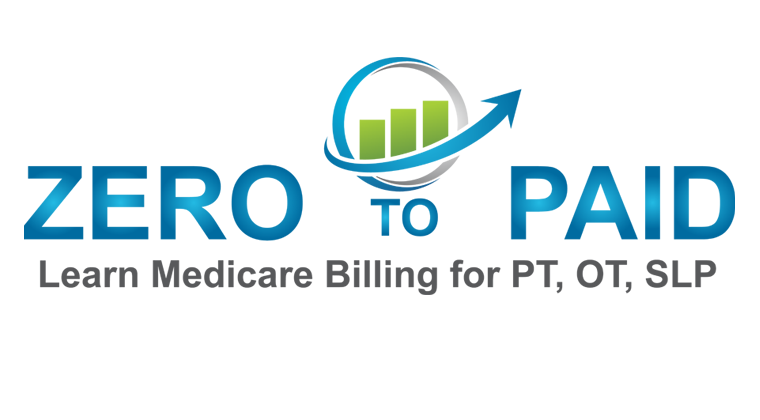Good Faith Estimate and No Surprise Act for Physical Therapy in 2022
In this video interview with Nancy Beckley from https://nancybeckley.com/ d we discuss:
- Good Faith Estimate
- No Surprise Act
- Physical Therapy Billing
- Occupational Therapy Billing
- Medicare, Medicaid, Self Pay Services, and more.
Highlights and Resources:
Requirements of providers and facilities –
(1) Requirements for convening providers and convening facilities. A convening provider or convening facility must determine if an individual is an uninsured (or self-pay) individual by:
(i) Inquiring if an individual is enrolled in a group health plan, group or individual health insurance coverage offered by a health insurance issuer, Federal health care program (as defined in section 1128B(f) of the Social Security Act), or a health benefits plan under chapter 89 of title 5, United States Code;
(ii) Inquiring whether an individual who is enrolled in a group health plan, or group or individual health insurance coverage offered by a health insurance issuer or a health benefits plan under chapter 89 of title 5, United States Code is seeking to have a claim submitted for the primary item or service with such plan or coverage; and
(iii) Informing all uninsured (or self-pay) individuals of the availability of a good faith estimate of expected charges upon scheduling an item or service or upon request; information regarding the availability of good faith estimates for uninsured (or self-pay) individuals must be:
(A) Written in a clear and understandable manner, prominently displayed (and easily searchable from a public search engine) on the convening provider’s or convening facility’s website, in the office, and on-site where scheduling or questions about the cost of items or services occur;
(B) Orally provided when scheduling an item or service or when questions about the cost of items or services occur; and
(C) Made available in accessible formats, and in the language(s) spoken by individual(s) considering or scheduling items or services with such convening provider or convening facility.
(iv) Convening providers and convening facilities shall consider any discussion or inquiry regarding the potential costs of items or services under consideration as a request for a good faith estimate;
(v) Upon the request for a good faith estimate from an uninsured (or self-pay) individual or upon scheduling a primary item or service to be furnished for such an individual, the convening provider or convening facility must contact, no later than 1 business day of such scheduling or such request, all co-providers and co-facilities who are reasonably expected to provide items or services in conjunction with and in support of the primary item or service and request that the co-providers or co-facilities submit good faith estimate information (as specified in paragraphs (b)(2) and (c)(2) of this section) to the convening provider or facility; the request must also include the date that good faith estimate information must be received by the convening provider or facility;
(vi) Provide a good faith estimate (as specified in paragraph (c)(1) of this section) to uninsured (or self-pay) individuals within the following timeframes:
(A) When a primary item or service is scheduled at least 3 business days before the date the item or service is scheduled to be furnished: Not later than 1 business day after the date of scheduling;
(B) When a primary item or service is scheduled at least 10 business days before such item or service is scheduled to be furnished: Not later than 3 business days after the date of scheduling; or
(C) When a good faith estimate is requested by an uninsured (or self-pay) individual: Not later than 3 business days after the date of the request.
(vii) A convening provider or convening facility must provide an uninsured (or self-pay) individual who has scheduled an item or service with a new good faith estimate if a convening provider, convening facility, co-provider, or co-facility anticipates or is notified of any changes to the scope of a good faith estimate (such as anticipated changes to the expected charges, items, services, frequency, recurrences, duration, providers, or facilities) previously furnished at the time of scheduling; a new good faith estimate must be issued to the uninsured (or self-pay) individual no later than 1 business day before the items or services are scheduled to be furnished.
(viii) If any changes in expected providers or facilities represented in a good faith estimate occur less than 1 business day before the item or service is scheduled to be furnished, the replacement provider or facility must accept as its good faith estimate of expected charges the good faith estimate for the relevant items or services included in the good faith estimate for the items or services being furnished that was provided by the replaced provider or facility.
(ix) For good faith estimates provided upon request of an uninsured (or self-pay) individual, upon scheduling of the requested item or service, the convening provider or convening facility must provide the uninsured (or self-pay) individual with a new good faith estimate for the scheduled item or service within the timeframes specified in paragraphs (b)(1)(vi)(A) and (B) of this section; and
(x) A convening provider or convening facility may issue a single good faith estimate for recurring primary items or services if the following requirements are met, in addition to the requirements under this section:
(A) The good faith estimate for recurring items or services must include, in a clear and understandable manner, the expected scope of the recurring primary items or services (such as timeframes, frequency, and total number of recurring items or services); and
(B) The scope of a good faith estimate for recurring primary items or services must not exceed 12 months. If additional recurrences of furnishing such items or services are expected beyond 12 months (or as specified under paragraph (b)(vii) of this section), a convening provider or convening facility must provide an uninsured (or self-pay) individual with a new good faith estimate, and communicate such changes (such as timeframes, frequency, and total number of recurring items or services) upon delivery of the new good faith estimate to help patients understand what has changed between the initial good faith estimate and the new good faith estimate.

Anthony Maritato, PT
Private Practice Owner / Physical Therapist
After starting a private practice physical therapy clinic in 2022 with his wife Kathy Maritato, PT, Tony and Kathy grew their practice to five locations across two states.
Now, Tony and Kathy enjoy spending time treating patients in the morning, coaching therapists in the evening, and being home to play with their dog Tucker and 4 boys.
